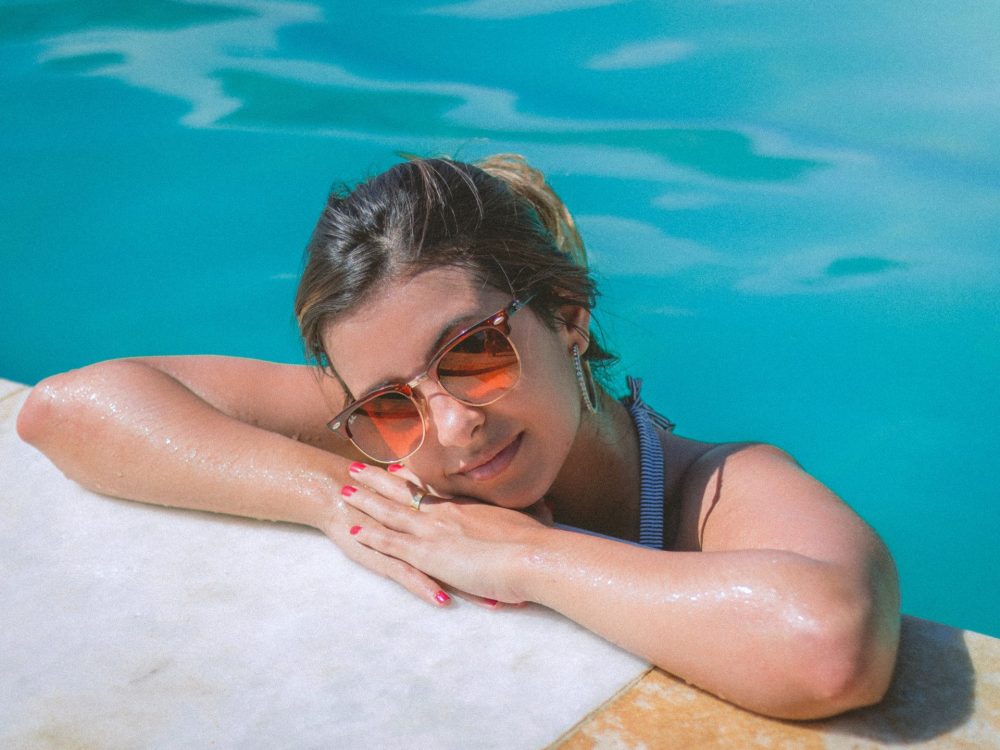Eye care tips during summer

The summer months exposes our eyes to increased health risks. UV rays, chlorine, sea salt, sand, and air conditioning can all cause eye problems.
Dr. Sonia Gálvez, Ophthalmology specialist at Hospital Ochoa, says “during the summer we should pay special attention to eye care because we spend more hours outdoors”. She outlines below a series of eye care tips for the summer.
Air conditioning
Air conditioning should be used in moderation because it generates dry air. This can negatively affect the mucous membranes of the eye, thus causing dry eye syndrome. Lubricating eye-drops are recommended whenever we feel that our eyes are dry, and direct contact with air conditioners or fans should be avoided.
Chlorine
Repeated exposure to chlorine and other chemicals may irritate the eye’s conjunctiva (a membrane that covers part of the organ) and can produce a corneal infection (keratitis). It is therefore advisable to follow these tips for the swimming pool:
- Do not open your eyes under water.
- Use swimming goggles that adequately seal around the eye.
- Wash the eyes with fresh water after swimming to remove any chemical substances.
- In case of itching or mild stinging, use lubricating tear-drops to keep the eye surface hydrated.
- Due to the risk of infection, swimming pools are not recommended after eye surgery.
- Contact lens wearers should exercise extra caution in swimming pools and never dive. The reason is they are at a greater risk of suffering from “acanthamoeba keratitis”, a serious eye condition that requires extensive treatment and potentially a corneal transplant.
When to see a specialist
People should see an eye specialist (ophthalmologist) if their eyes are red or dry, if they hurt, itch or burn, or if they develop blurred vision or hypersensitivity to light. Eye issues can range from a minor infection that lasts a few days to more grave issues that negatively impact sight permanently. Thus, early treatment may be key for avoiding worsening conditions.
How to choose suitable sunglasses
Protecting our eyes from UV rays is critically important, and more so during the summer months, but wearing bad sunglasses can in fact be worse than wearing none at all. Here are some tips when buying sunglasses:
- The “CE” stamp. Look for the “CE” mark which indicates that they meet EU safety standards. If they don’t meet this standard, the lenses may be of such poor quality that they allow the pupil to dilate, thus allowing more sunlight to enter and causing greater damage to the eyes.
- Full UV protection. Sunglasses should be labelled UV400, which indicates 100% protection from ultraviolet radiation.
- Visible Light Transmission (VLT). How much light passes through lenses is measured from 0 to 4. Category 0 filters the least amount of light while category 4 blocks the most and are typically very dark in colour.
- Specialised retailers. Due to the high number of counterfeits, it is recommended we buy eyewear from specialised shops or opticians.
- Children. Because they spend more time outdoors, and because their crystalline eye lens is thinner, children’s eyes receive approximately three times more solar radiation than adults. Thus, it is critically important for children to wear protective sunglasses.




